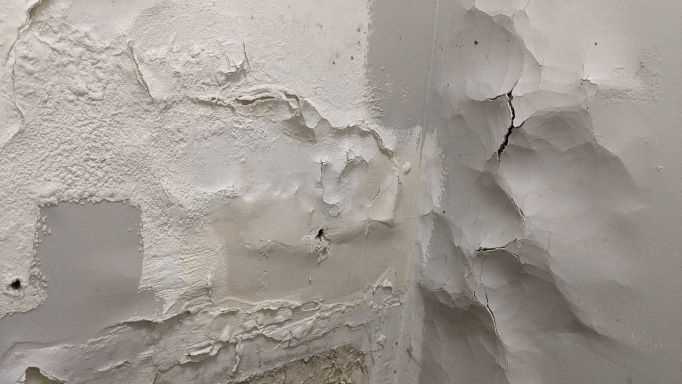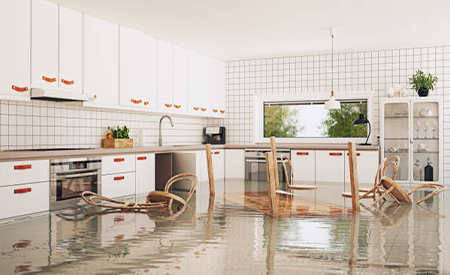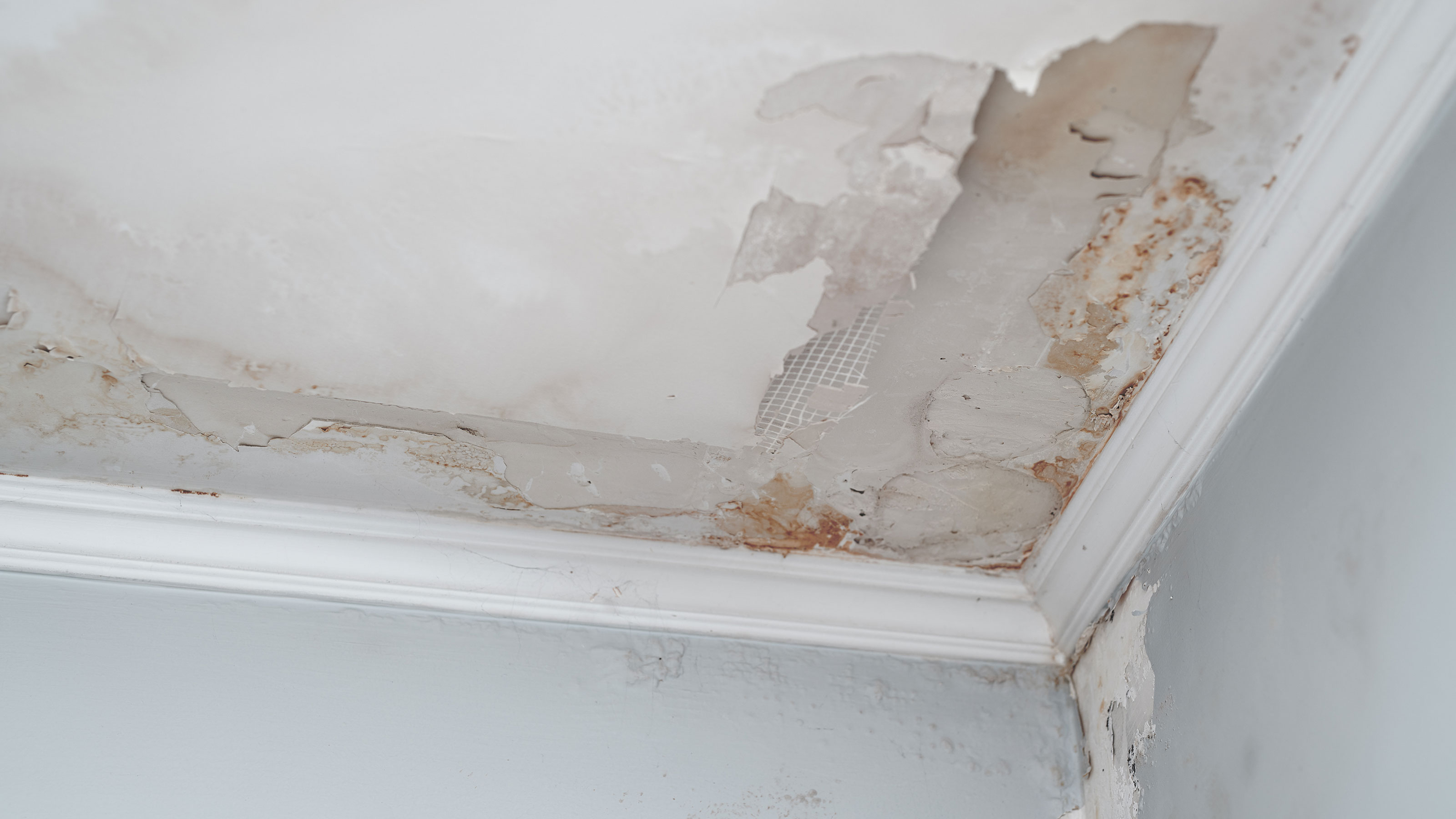Professional Water Damage Restoration for Homes and Businesses Near You
The Refine of Water Damage Cleanup: Ensuring Your Home Is Recovered Successfully
Water damage can be a complicated difficulty for property owners, necessitating a thorough and organized clean-up process to recover security and functionality. A comprehensive analysis is vital to identify the degree of the damage and figure out the appropriate removal measures. Following this, reliable water extraction methods play a pivotal function in mitigating additional injury. The nuances of drying, disinfecting, and eventual repair are just as important and usually neglected. Comprehending these phases can make a significant difference in the result of your home's restoration, triggering a closer consider what each step involves.
Examining the Damages
Upon uncovering water damages, the initial action is to extensively evaluate the extent of the effect. This initial evaluation is crucial, as it assists figure out the essential steps for efficient cleaning and reconstruction. Begin by inspecting the influenced areas, consisting of wall surfaces, ceilings, floors, and individual valuables, to identify the resource of the water breach, whether from flooding, leakages, or condensation.
Recording the damage is necessary for both insurance coverage cases and preparing reconstruction efforts - damage restoration services. Use photographs and written notes to capture the extent of the damages, noting any affected architectural aspects and materials. Pay special focus to locations that may not be right away visible, such as behind walls and under carpetings, as hidden moisture can lead to more issues, including mold and mildew development
Furthermore, assess the timeline of the water direct exposure. The longer the products remain damp, the higher the potential for damages. Comprehending the duration of direct exposure will educate the seriousness of remediation initiatives. Ultimately, a thorough analysis prepares for an effective water damage cleaning process, ensuring that all influenced locations are addressed efficiently and thoroughly.
Water Extraction Strategies

Experts commonly employ submersible pumps for larger volumes of water, which can swiftly alleviate flooding in basements or other impacted locations. For smaller sized amounts, wet/dry vacuums are frequently made use of to draw out residual wetness from rugs and tough surface areas. In addition, making use of mobile extractors permits targeted elimination in confined rooms or locations with fragile products.
In circumstances of infected water, such as sewer or floodwater, progressed removal strategies might include making use of biohazard equipment to make sure security and compliance with health and wellness guidelines. High-powered removal devices are critical in lessening water retention in structural products, which can bring about mold and mildew development and structural wear and tear otherwise resolved quickly.
Eventually, the effectiveness of water extraction strategies plays an essential function in the overall success of the water damage cleanup procedure, preparing for subsequent restoration initiatives.
Drying and Dehumidification
As soon as standing water has been efficiently extracted, the following important phase in the water damage cleaning procedure is drying and dehumidification. This action is necessary to stop additional damage and mold and mildew development, which can occur within 24 to 2 days in moist environments.
To attain reliable drying, customized devices such as industrial-grade air movers and dehumidifiers is used. Air movers circulate air throughout wet surface areas, enhancing dissipation rates, while dehumidifiers reduce moisture levels airborne, advertising a favorable environment for drying out. The mix of these devices guarantees that dampness is drawn out from floorings, furnishings, and wall surfaces, permitting them to dry completely.
It is essential to check the drying out procedure carefully. Specialists typically make use of moisture meters to examine the moisture content in different products, making certain that all affected areas get to appropriate dryness levels. This careful approach aids to prevent concealed dampness pockets that could result in architectural damages or harmful mold growth.

Cleansing and Disinfecting
After the drying out and dehumidification stage is full, the next vital action in water damage cleanup is cleaning and sanitizing the affected areas. This process is important to protect against the growth of mold and top article mildew, microorganisms, and various other virus that grow in wet settings.
The cleansing phase usually includes eliminating any type of debris, dirt, and impurities from surface areas making use of specialized cleaning representatives. For tough surface areas, a combination of soap and water or commercial cleaning items is commonly employed. Soft products, such as furniture and rugs, may call for extra considerable cleansing techniques, including vapor cleansing or deep extraction techniques, to make certain detailed hygiene.

Sanitizing adheres to cleansing, utilizing EPA-approved anti-bacterials to get rid of damaging microorganisms. This action is vital, especially in locations that may have entered into call with floodwaters or sewage, as these resources can present major wellness dangers.
Additionally, it is very important to attend to any continuing to be odors, which might call for the usage of odor neutralizers or innovative techniques like ozone therapy. Proper cleaning and disinfecting not only recover the security and health of your home but likewise prepared for successful restoration and repair work in succeeding stages of the water damage cleaning process.
Repair and Fixings

When the assessment is full, remediation efforts can start. Additionally, floor covering might require similar interest, depending on the level of water direct exposure.
It is crucial to involve seasoned reconstruction experts during this process, as they possess the competence to handle complex repair work successfully. They can help minimize potential future concerns, such as mold development or structural instability, therefore ensuring a habitable and safe living atmosphere. Ultimately, reliable restoration and repair work recover the home's integrity and boost its overall value.
Final Thought
Finally, the process of water damages cleanup is important for restoring a home to its pre-damage condition. Each stage, from assessing the damage to applying reliable water extraction strategies, adhered to by extensive drying out, sterilizing, and essential repair work, plays an essential anchor function in making certain safety and compliance with building criteria. Reliable implementation of these steps not only alleviates prompt damages but also enhances the long-lasting stability and worth of the home.
Water damages can be a complicated difficulty for house owners, requiring a careful and structured cleanup procedure to recover security and performance. Ultimately, a comprehensive assessment lays the foundation for an effective water damages clean-up process, ensuring that all influenced locations are attended to successfully and thoroughly.
Reliable water removal methods are important in reducing damage and protecting against more issues following a water breach event.In conclusion, the procedure of water damage cleaning is essential for bring back a home to its pre-damage condition. Each phase, from analyzing the damage to implementing reliable water extraction techniques, adhered to by complete drying, disinfecting, and required repair services, plays a necessary role in making certain safety and conformity with building requirements.